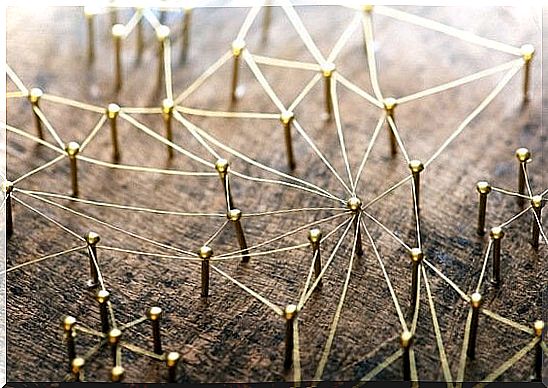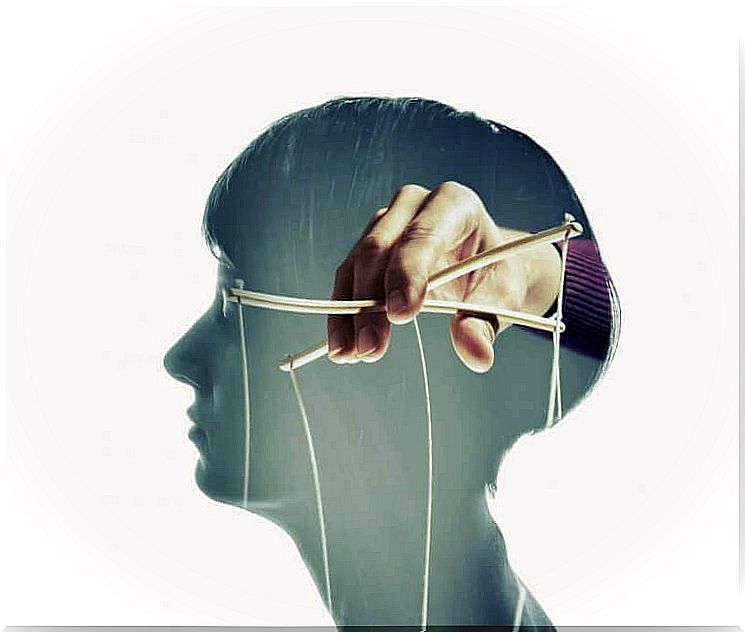Asymmetric Reciprocity, An Obstacle In Human Relationships

Equity is at the foundation of most relationships we have. On the other hand, we all know that total equity is a utopia. It is never possible to achieve a perfect balance between what is given or received and ensure that, when it is in our hands, we receive more of what we most deserve or need most. However, when a clear asymmetric reciprocity prevails, there is great deterioration in many ties.
We all know one or more people who give their all for others, who share everything they have. People to whom, for all they give, it’s hard to respond in the same way. It is also reasonable that it is impossible to establish total equality in what each delivers. It is not desirable that it be like this either: it would have more to do with calculation than with spontaneity.
On the other hand, the concept of “giving” is very broad. It means giving other material or spiritual goods. Within these, we find affection, time, listening, etc. If an asymmetric reciprocity prevails, it is common for one of the parties to feel comfortable receiving and make no effort to respond. This is an attitude that becomes particularly critical in couple relationships.

The causes of asymmetric reciprocity
It is worth asking ourselves why relationships are sometimes configured in which this asymmetric reciprocity is installed. Most commonly, this phenomenon is the result of two types of situations. In both, the idea is built that one of those involved has a greater capacity, or has a greater duty, in relation to the other or to others.
The first situation occurs when there is a person who has some kind of special strength. For example, you have more problem solving skills, are more knowledgeable, or are simply emotionally stronger than those around you. This special virtue ends up playing against that person. Others expect her to be the one to solve, guide, etc., without anything to compensate for her contribution or wear.
This type of situation sometimes extends to state action. It is called “assistentialism”. It is based on the idea that a person, having some kind of vulnerability, does not need to correspond to what is attributed to him. Although there are situations in which this asymmetric reciprocity is justified, this only applies to very specific circumstances and on a temporary basis.
When the most vulnerable are forced to donate
The second situation in which asymmetric reciprocity is usually configured is opposite to the previous one. It happens when one of the parties is despised or stripped of its dignity. The idea is then formed that she must give her all in exchange for very little, because in one way or another her needs are less important than those of others.
This is what happened throughout history with enslaved peoples. They forged ideas according to which, because someone has a certain skin color or because they belong to a certain culture, there are no rights. In these cases, the subject should just give his all, without expecting anything in return.
This also happens in many human relationships, particularly in family or couple relationships. We establish the idea that the weakest or most vulnerable party has more obligations than the other or the others. Anyone who has not studied a profession must serve those who have. Or we imagine that those who are more insecure must submit to others to gain their acceptance.

The effects of asymmetric reciprocity
Although, in one way or another, there is always some asymmetric reciprocity in human relationships, when this is disproportionate, it generates very harmful effects for those involved. What it does, in the end, is create unfair and harmful conditions. Unjust because one person ends up being an instrument of the other, and harmful because this lack of reciprocity is a form of violence, which also generates violence.
In all cases, including that of the State, those who are forced to give without receiving are being exploited. This apparent balance can be kept relatively stable for some time, but sooner or later it will generate a growing dissatisfaction, which often ends up breaking the false balance.

For those who dominate, in any case, asymmetric reciprocity does not contribute much either. You may own the domain or rely on someone’s free good trades, but that somehow also degrades you and sometimes makes you useless. It also puts you in a state of need. What would the master be without his slave? What is left of the one who dominates when he no longer has his dominated?









